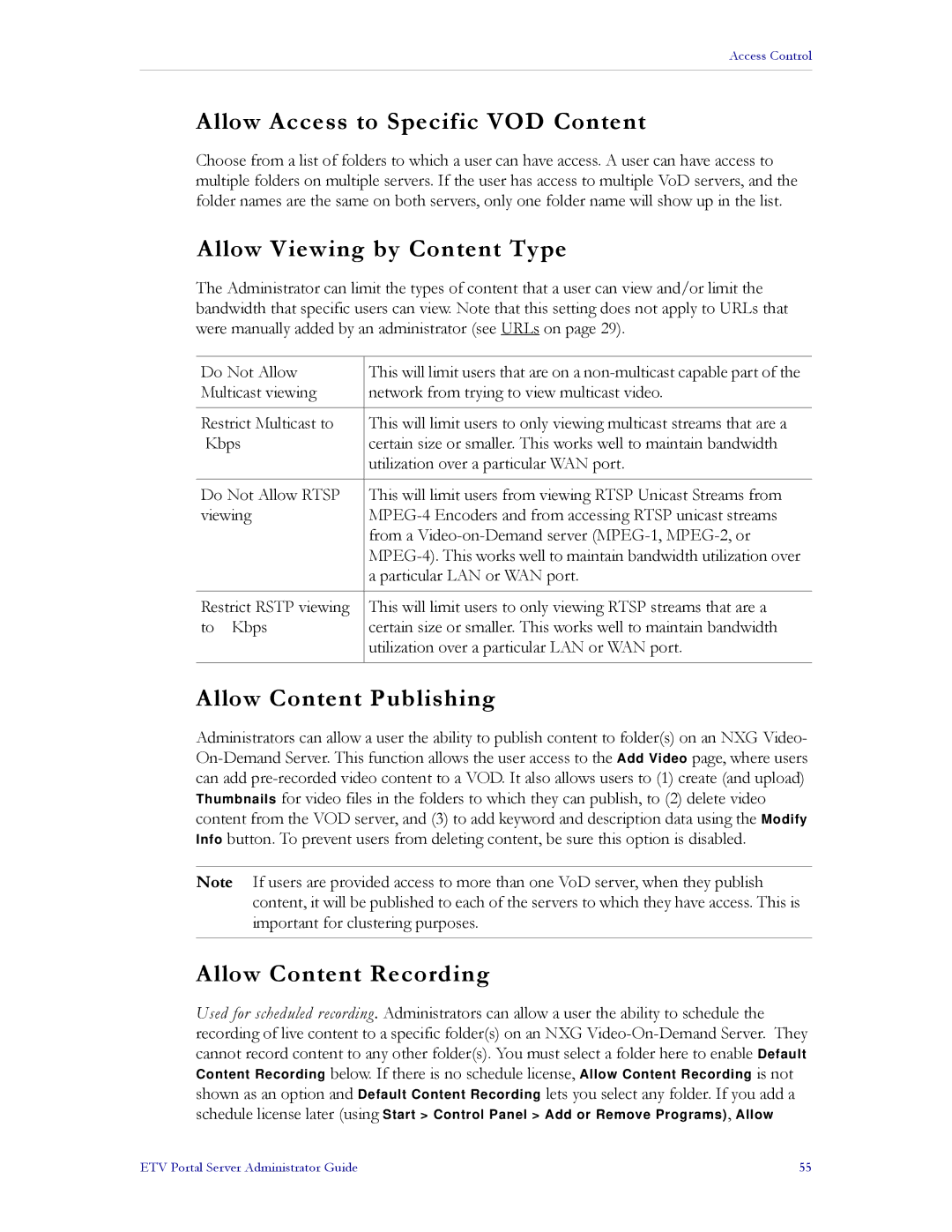
Access Control
Allow Access to Specific VOD Content
Choose from a list of folders to which a user can have access. A user can have access to multiple folders on multiple servers. If the user has access to multiple VoD servers, and the folder names are the same on both servers, only one folder name will show up in the list.
Allow Viewing by Content Type
The Administrator can limit the types of content that a user can view and/or limit the bandwidth that specific users can view. Note that this setting does not apply to URLs that were manually added by an administrator (see URLs on page 29).
Do Not Allow | This will limit users that are on a |
Multicast viewing | network from trying to view multicast video. |
|
|
Restrict Multicast to | This will limit users to only viewing multicast streams that are a |
Kbps | certain size or smaller. This works well to maintain bandwidth |
| utilization over a particular WAN port. |
|
|
Do Not Allow RTSP | This will limit users from viewing RTSP Unicast Streams from |
viewing | |
| from a |
| |
| a particular LAN or WAN port. |
|
|
Restrict RSTP viewing | This will limit users to only viewing RTSP streams that are a |
to Kbps | certain size or smaller. This works well to maintain bandwidth |
| utilization over a particular LAN or WAN port. |
|
|
Allow Content Publishing
Administrators can allow a user the ability to publish content to folder(s) on an NXG Video-
Note If users are provided access to more than one VoD server, when they publish content, it will be published to each of the servers to which they have access. This is important for clustering purposes.
Allow Content Recording
Used for scheduled recording. Administrators can allow a user the ability to schedule the recording of live content to a specific folder(s) on an NXG
schedule license later (using Start > Control Panel > Add or Remove Programs), Allow
ETV Portal Server Administrator Guide | 55 |
